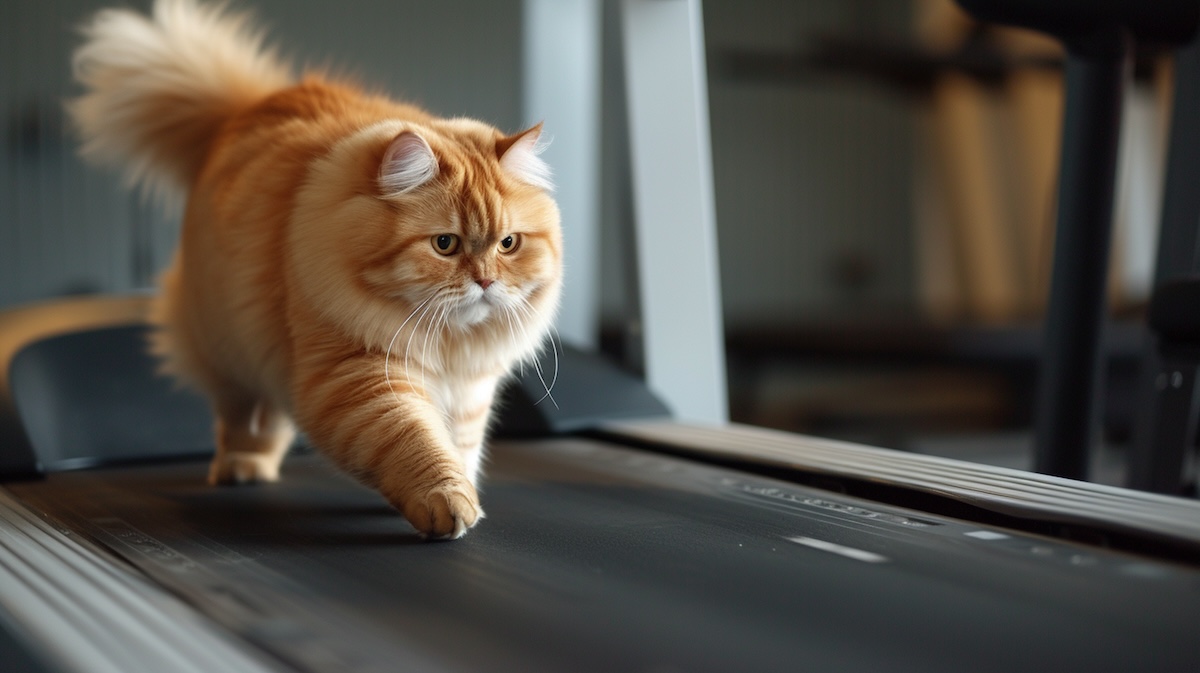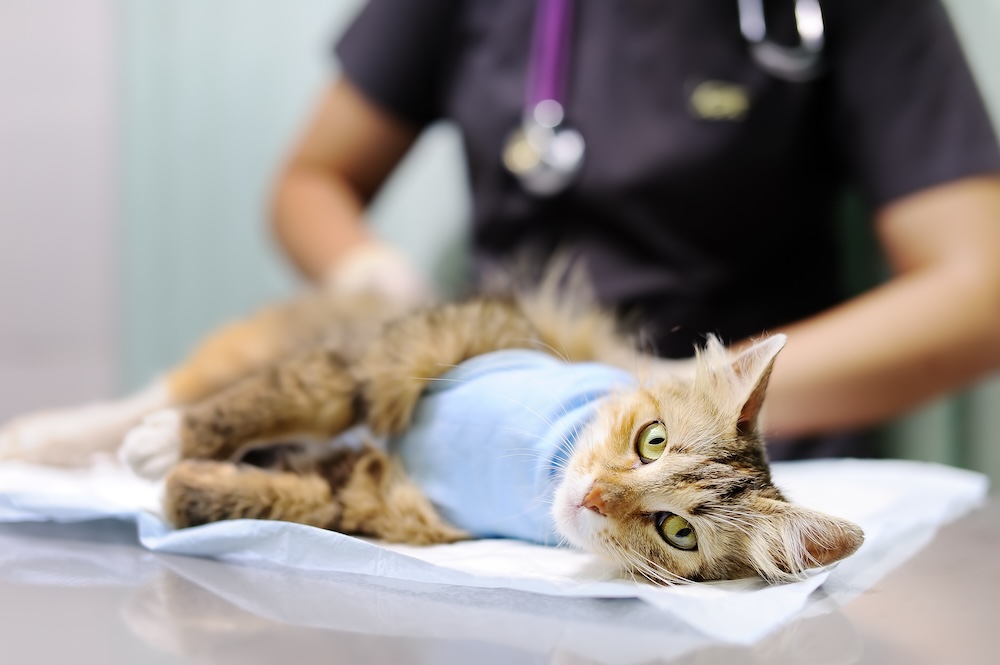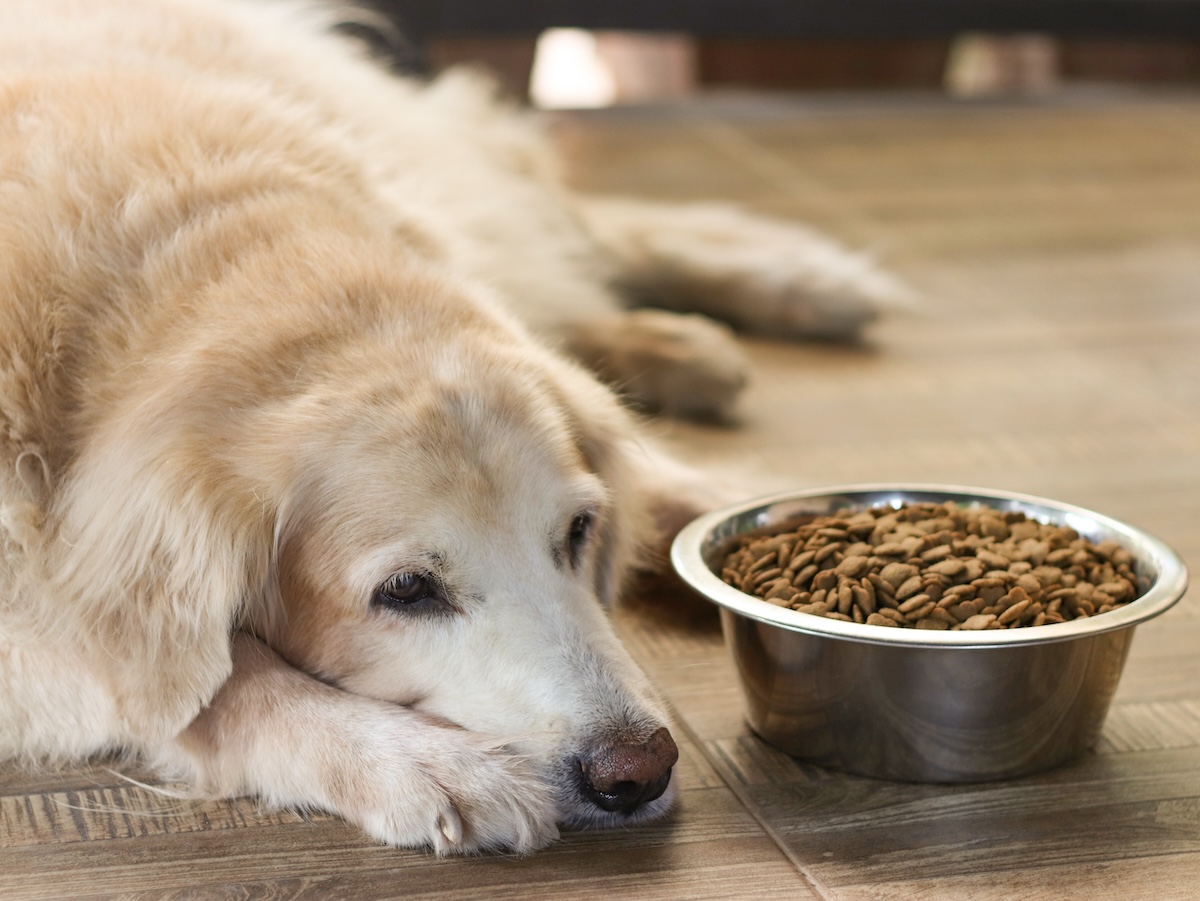At Faithful Friends Veterinary Clinic, we appreciate the joy and companionship our feline friends bring into our lives. However, just like us, our cats can also struggle with weight issues. If you’ve noticed that your cat has been packing on some extra pounds, it’s natural to wonder whether this is a cause for concern. Here, we’ll delve into the potential health risks associated with feline obesity, how to determine if your cat is overweight, and tips for managing their weight effectively.
Why Obesity in Cats Is a Serious Concern
While a chubby cat might seem cute and cuddly, carrying extra weight can lead to significant health problems. Here are some key risks associated with feline obesity:
Diabetes Mellitus
One of the most severe risks of obesity in cats is the development of diabetes mellitus. Overweight cats are more prone to insulin resistance, making it difficult for their bodies to regulate blood sugar levels. Managing diabetes in cats often requires lifelong treatment, including insulin injections and specialized diets.
Joint Issues and Arthritis
Excess weight puts additional strain on your cat’s joints, leading to conditions such as arthritis. Arthritic cats experience chronic pain, reduced mobility, and stiffness, which can significantly affect their quality of life.
Heart Disease
Obesity increases the risk of heart disease in cats. Extra weight can lead to high blood pressure, cardiovascular stress, and reduced heart function. Symptoms of heart disease include lethargy, coughing, and breathing difficulties.
Respiratory Problems
Overweight cats often struggle with respiratory issues. Excess fat can restrict lung function, leading to difficulty breathing and reduced oxygen intake, especially during exercise.
Liver Disease
Fatty liver disease (hepatic lipidosis) is more common in obese cats. When an overweight cat stops eating, the body sends fat to the liver to be converted into energy. This can overwhelm the liver and lead to failure, a potentially life-threatening condition.
How to Determine if Your Cat Is Overweight
Assessing your cat’s weight can be tricky since different breeds and individual cats have unique body types. Here are a few methods to help determine if your cat is overweight:
Body Condition Score (BCS)
The Body Condition Score is a numerical scale used to assess your cat’s body fat. Typically, the BCS scale ranges from 1 to 9, with 1 being emaciated and 9 being severely obese. A healthy cat should ideally fall within the 4 to 5 range, meaning you should be able to feel the ribs with slight pressure, and there should be a visible waist behind the ribs.
Rib Check
Using your hands, gently feel your cat’s ribcage. In a healthy cat, you should be able to feel the ribs easily but not see them. If the ribs are difficult to feel beneath a thick layer of fat, your cat may be overweight.
Profile Assessment
Look at your cat from both the side and above. From the side, there should be a noticeable tuck behind the ribs. From above, you should see a defined waist. A lack of visible definition suggests your cat may be carrying extra weight.
Managing Your Cat’s Weight
If you determine that your cat is overweight, it’s crucial to take steps to manage their weight. Here’s how you can help your furry friend get back to a healthy weight:
Consult Your Veterinarian
Before starting any weight-loss regimen, consult your veterinarian. At Faithful Friends Veterinary Clinic, we can provide a comprehensive health assessment and create a personalized weight-loss plan tailored to your cat’s needs.
Balanced Diet
Switching to a balanced, low-calorie diet is essential for weight loss. Your veterinarian can recommend a specialized diet that provides all the necessary nutrients without the extra calories. Avoid giving your cat high-calorie treats and human food.
Portion Control
Carefully measure your cat’s food portions to avoid overfeeding. Follow the guidelines provided on the food packaging or those recommended by your veterinarian. Using a gram scale can ensure precision.
Increase Physical Activity
Encouraging regular exercise is vital for burning calories and promoting overall health. Here are some strategies to keep your cat active:
- Interactive Toys: Use toys like feather wands, laser pointers, and interactive scratching posts to stimulate play.
- Puzzle Feeders: Invest in puzzle feeders that require your cat to work for their food, combining mental stimulation with physical activity.
- Scheduled Playtime: Dedicate specific times each day for active play. Short, frequent sessions are often more effective than longer, sporadic playtimes.
Preventing Obesity in Cats
Prevention is always more effective than treatment. Here are some tips to keep your cat at a healthy weight:
Regular Veterinary Check-Ups
Schedule regular check-ups with your veterinarian. Routine visits will help monitor your cat’s weight and overall health, making early detection of any issues possible.
Maintain a Balanced Diet
Feed your cat a well-balanced diet that suits their age, activity level, and health status. Avoid free-feeding (leaving food out all day) and establish regular feeding times.
Encourage Exercise
Incorporate play and exercise into your cat’s daily routine. Keeping them physically active will help maintain their ideal weight and contribute to their overall well-being.
Avoid Overfeeding
Be mindful of portion sizes and avoid overfeeding. Treats should be given sparingly and should never exceed 10% of your cat’s daily caloric intake.
Trust the Cat Experts
If you’re concerned about your overweight cat, don’t hesitate to reach out to Faithful Friends Veterinary Clinic. Our team specializes in providing comprehensive care for cats and can help you develop an effective weight management plan. Remember, your cat’s health and happiness are our top priorities, and with the right approach, we can work together to ensure a healthier, more active life for your feline friend.
Taking proactive steps to manage your cat’s weight can prevent numerous health issues and enhance their quality of life. Contact us today to schedule an appointment or to learn more about how to keep your cat healthy and fit!




